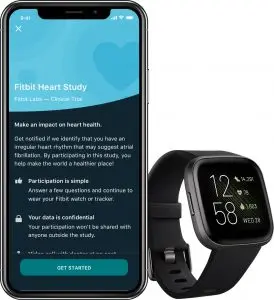The Fitbit tracker you already own (the one you might’ve tucked away in a drawer years ago) could get a noteworthy new feature—if a new, “virtual” study goes well.

The popular Charge 3 tracker launched in 2018—the same year Apple brought irregular heart rhythm notifications to its Series 4 smartwatch. The study announced today is part of Fitbit’s strategy to compete with Apple Watches, which have cast a long shadow over the wearables empire and pushed it to invest in full-blown smartwatches.
Fitbit’s study is open to adults in the U.S. who are at least 22 years old. If you’re comfortable sharing your heart data, you can sign up here.
Recognize your brand’s excellence by applying to this year’s Brands That Matter Awards before the early-rate deadline, May 3.
